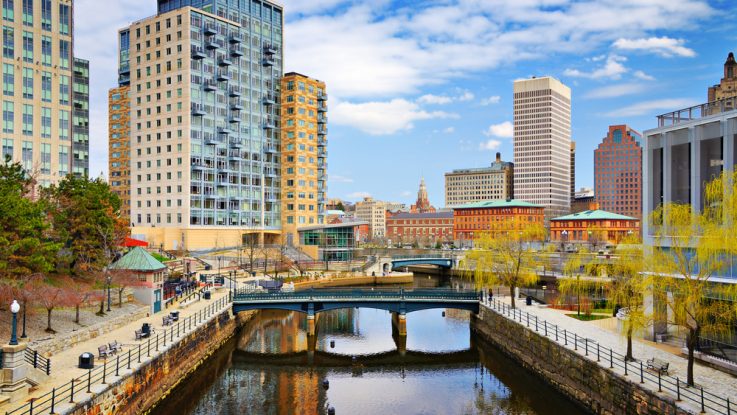
Grow Smart Rhode Island recently announced the winners of its eighth annual Rhode Island Smart Growth Awards. The winners are:
Outstanding Smart Growth Leader:
- Barbara Fields, Housing & Community Development Leader – a recognized expert in community economic development and housing finance, who has always prioritized transportation choices, walk-able neighborhoods, compact design, access to education and healthcare services, and all the other tenets of smart growth in her approach to directing housing finance and advocacy.
Outstanding Smart Growth Projects:
- South Street Landing – Providence – a public/private partnership which converted a former power plant that had been vacant for 20 years into consolidated administrative space for Brown University and a state-of-the-art nursing education facility for Rhode Island College and the University of Rhode Island.
- Fernwood & Greenridge Commons – Pascoag Village, Burrillville – two affordable housing developments which preserved significant open space. The Fernwood ‘Self-Help’ Housing project is a unique strategy to create homeownership opportunities for low-income families in rural communities using a cooperative, sweat-equity model.
- Innovate Newport – Newport – the project renovated and repurposed a former elementary school into a co-working, private office and meeting space to create a collaborative environment that is targeted towards existing companies in the marine sciences and underwater technology sectors.
- 60 King – Providence – the adaptation of a vacant, historic mill building into 60 units of mixed-income rental housing.
Outstanding Smart Growth Policy:
- Town of Warren – for its assertive and holistic approach to implementing smart, sustainable growth while taking into account issues such as workforce housing, preparing infrastructure to be resilient to climate change, small business development, bicycle tourism, and smart siting of renewable energy.
- University of Rhode Island Transportation and Parking Master Plan – South Kingstown – adopted in March of 2018 , the plan has resulted in a more flexible, efficient, and effective campus shuttle service, automated license plate recognition parking and improved transportation signage, the implementation of “complete streets” in the design for the reconstruction of Upper College Road, electric charging stations, and the reduction of single occupancy vehicles on campus.